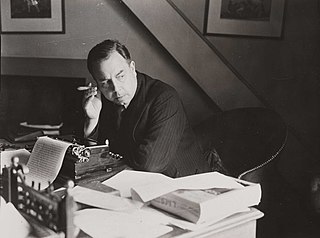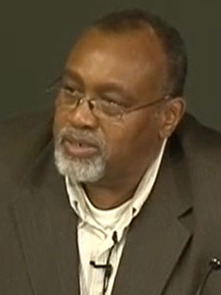Цитата Дж. Б. Пристли
Романист, который ничего не пишет в течение 10 лет, обнаруживает, что его репутация растет. Поскольку я продолжаю выпускать книги, они говорят, что с этим парнем что-то не так.
Связанные цитаты
В Англии, если что-то пойдет не так — скажем, если кто-то найдет скунса в саду, — он пишет семейному поверенному, который принимает надлежащие меры; тогда как в Америке вы звоните в пожарную службу. Каждый удовлетворяет характерную потребность; у англичан любовь к порядку и юридическим процедурам; а здесь, в Америке, вам нравится что-нибудь яркое, красное и стремительное.
Люди говорят: «Почему ему с ней скучно?» Потому что он человек, вот почему; точно так же его жене скучно с ним. Это и есть брак — все, что должно быть навсегда, вам это надоест. И в этом нет ничего плохого, так что не принимайте это на свой счет; если ты с кем-то десять лет и ему с тобой не скучно? Тогда что-то с ними не так.
Вы можете посадить человека в тюрьму на 5 лет, на 10 лет или на 20 лет за одно и то же преступление. Мы решаем от 10 до 20 лет, тогда как 5 лет будет достаточно. Хорошо. Сдерживающая ценность, дополнительные рычаги воздействия, которые вы получаете на преступника, чтобы удержать его от нарушения закона в первую очередь, связанные с увеличением сроков заключения, незначительны; это по сути ничего.
Нет ничего плохого в том, чтобы передумать. Очень легко сказать: "Все в порядке..." Кто я такой, чтобы говорить, что в этом нет ничего плохого? Может быть, что-то не так с изменением вашего мнения. В любом случае, любить очень и очень сложно. Я люблю. Но, вероятно, из-за того, что я ненавижу себя на каком-то глубоком, болезненном уровне, это затрудняет любовь. Но я стараюсь.
Мы думали, что знали 20 лет назад. Это привело к появлению нескольких алармистских книг, в том числе и моей, потому что это выглядело четко, но этого не произошло. Климат делает свои обычные трюки. На самом деле пока ничего особенного не происходит. Мы должны были быть уже на полпути к жарящемуся миру. Мир не сильно нагревался с тысячелетия. Двенадцать лет — разумный срок. Температура осталась почти постоянной, тогда как она должна была повышаться - углекислый газ поднимается, в этом нет сомнений.
Власть и власть имущие ничего не уступают... без спроса. Эй, никогда не было и никогда не будет ... Каждый из нас должен продолжать требовать, должен продолжать бороться, должен продолжать громить, должен продолжать пахать, должен продолжать бороться, должен говорить и говорить до тех пор, пока правосудие не восторжествует, потому что где нет справедливости нет мира.
Я должен сказать несколько слов о памяти. Он полон дыр. Если бы вы разложили его на столе, он был бы похож на клочок кружева. Я любитель истории. . . [но] у истории есть один изъян. Это субъективное искусство, не меньшее, чем поэзия или музыка. . . . Историк пишет правду. Мемуарист пишет правду. Романист пишет правду. И так далее. Моя мать, мы оба знаем, написала правду в «Девятнадцатой жене» — правду, которая соответствовала ее памяти и желаниям. Это не правда, конечно нет. Но правда, да. . . Ее книга — факт. Он остается таким, даже если он весь в снежинках с дырками.
Идеальная аудитория, которую воображает поэт, состоит из красивых, которые ложатся с ним в постель, сильных мира сего, которые приглашают его на обед и рассказывают ему государственные секреты, и его собратьев-поэтов. Реальная аудитория, которую он получает, состоит из близоруких школьных учителей, прыщавых молодых людей, которые едят в столовых, и его товарищей-поэтов. То есть фактически он пишет для своих собратьев-поэтов.
Ты хочешь сказать, что крупицы моей репутации остались нетронутыми? — спросил Уилл с притворным ужасом. — Очевидно, я делал что-то не так. Или не что-то неладное, в зависимости от обстоятельств. — Он ударил по вагону. — Томас! Мы должны немедленно отправиться в ближайший публичный дом. Я ищу скандала и низкого общества.







































